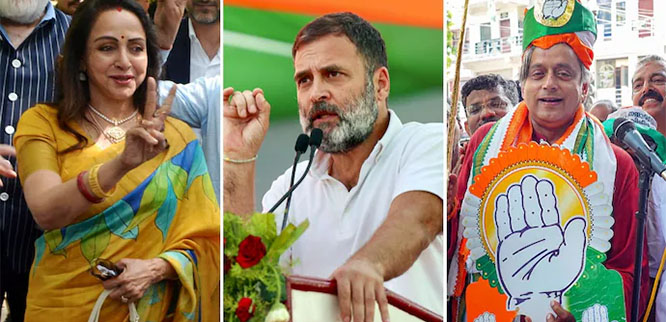Mumbai, Nov 11: As an unprecedented fight plays out between the RBI and the government, it is the central bank's 18 board members who are being keenly watched for their next course of action -- they are not only central bankers and government officials but also business leaders, economists and activists.
The RBI board is scheduled to meet next on November 19 amid an ongoing tussle with the government on multiple fronts.
Going by the public utterances of the RBI and government officials so far, the contentious issues are how to manage the huge surplus the RBI has accumulated, how should it deal with errant lenders and borrowers amid a persisting bad loan crisis and what could be the 'public interest' for the government to dictate directions so that it is not seen as an attack on the central bank's autonomy.
As per the RBI website, its central board currently has 18 members, though the provision is that it can go up to 21.
The members include Governor Urjit Patel and his four deputies as 'full-time official directors', while the rest 13 have been nominated by the government, including two Finance Ministry officials -- Economic Affairs Secretary Subhash Chandra Garg and Financial Services Secretary Rajiv Kumar.
There are also Swadeshi ideologue Swaminathan Gurumurthy and cooperative banker Satish Marathe, nominated by the government as "part-time non-official directors".
The entire board is appointed by the government under the RBI Act, which mandates the central board with "general superintendence and direction of the Reserve Bank's affairs".
The government can nominate 10 'non-official' directors from various fields and two government officials. The four non-official directors are one each from the four regional boards of the RBI.
Besides Patel, the four official directors are N S Vishwanathan and Viral Acharya, both of whom have gone public with their direct or indirect criticism of any attempt to undermine the RBI's autonomy, as also B P Kanungo and M K Jain.
Patel became Governor in September 2016 after serving as Deputy Governor since January 2013. Previously, he had served at the International Monetary Fund (IMF) and was also on deputation from the IMF to the RBI during 1996-1997.
He was a Consultant to the Ministry of Finance from 1998 to 2001 and has a PhD in economics from Yale University, an M Phil from University of Oxford and a BSc from the University of London.
Acharya is a New York University Professor of Economics, while Kanungo and Vishwanathan are career central bankers. Jain was appointed as a Deputy Governor in June 2018 and previously headed IDBI Bank and Indian Bank, among other professional banking roles.
The business leaders on the RBI board include Tata group chief Natarajan Chandrasekaran, former Mahindra group veteran Bharat Narotam Doshi, Teamlease Services co-founder Manish Sabharwal and Sun Pharma chief Dilip Shanghvi.
The other members are Sudhir Mankad (retired IAS officer whose last assignment was as Gujarat government's Chief Secretary), Ashok Gulati (agricultural economist), Prasanna Mohanty (ex-IAS officer and economist), Sachin Chaturvedi of Delhi-based think-tank Research and Information System for Developing Countries (RIS) and Revathy Iyer (a former Deputy Comptroller and Auditor General).
In the past also, the RBI's board has had several business leaders such as Ratan Tata, Kumar Mangalam Birla, NR Narayana Murthy, Azim Premji, G M Rao, Y C Deveshwar and K P Singh.
Recently, the tenure of board member Nachiket Mor, who had previously been an executive director at ICICI Bank, was cut short -- nearly a year after he was re-nominated by the government in August 2017 for a second term of four years.
The central board members in the past also included Kiran S Karnik, Y H Malegam, Ela Bhatt, V Rajeev Gowda, Suresh Tendulkar and Suresh Neotia.
The RBI was established on April 1, 1935 and the appointment and tenure of the board members are governed by Section 8 of the RBI Act.
It is Section 7, which has been in news lately, that provides that the "Central Government may from time to time give such directions to the Bank as it may, after consultation with the Governor of the Bank, consider necessary in the public interest".
"Subject to any such directions, the general superintendence and direction of the affairs and business of the Bank shall be entrusted to a Central Board of Directors which may exercise all powers and do all acts and things which may be exercised or done by the Bank," Section 7 further says.
It also provides that "save as otherwise provided in regulations made by the Central Board, the Governor and in his absence the Deputy Governor nominated by him in his behalf, shall also have powers of general superintendence and direction of the affairs and the business of the Bank, and may exercise all powers and do all acts and things which may be exercised or done by the Bank".
Though originally privately owned, since nationalisation in 1949, the Reserve Bank is fully owned by the Government of India.
The RBI is mandated "to regulate the issue of bank notes and keeping of reserves with a view to securing monetary stability in India and generally to operate the currency and credit system of the country to its advantage".
It is also required "to have a modern monetary policy framework to meet the challenge of an increasingly complex economy, to maintain price stability while keeping in mind the objective of growth.








Comments
Add new comment